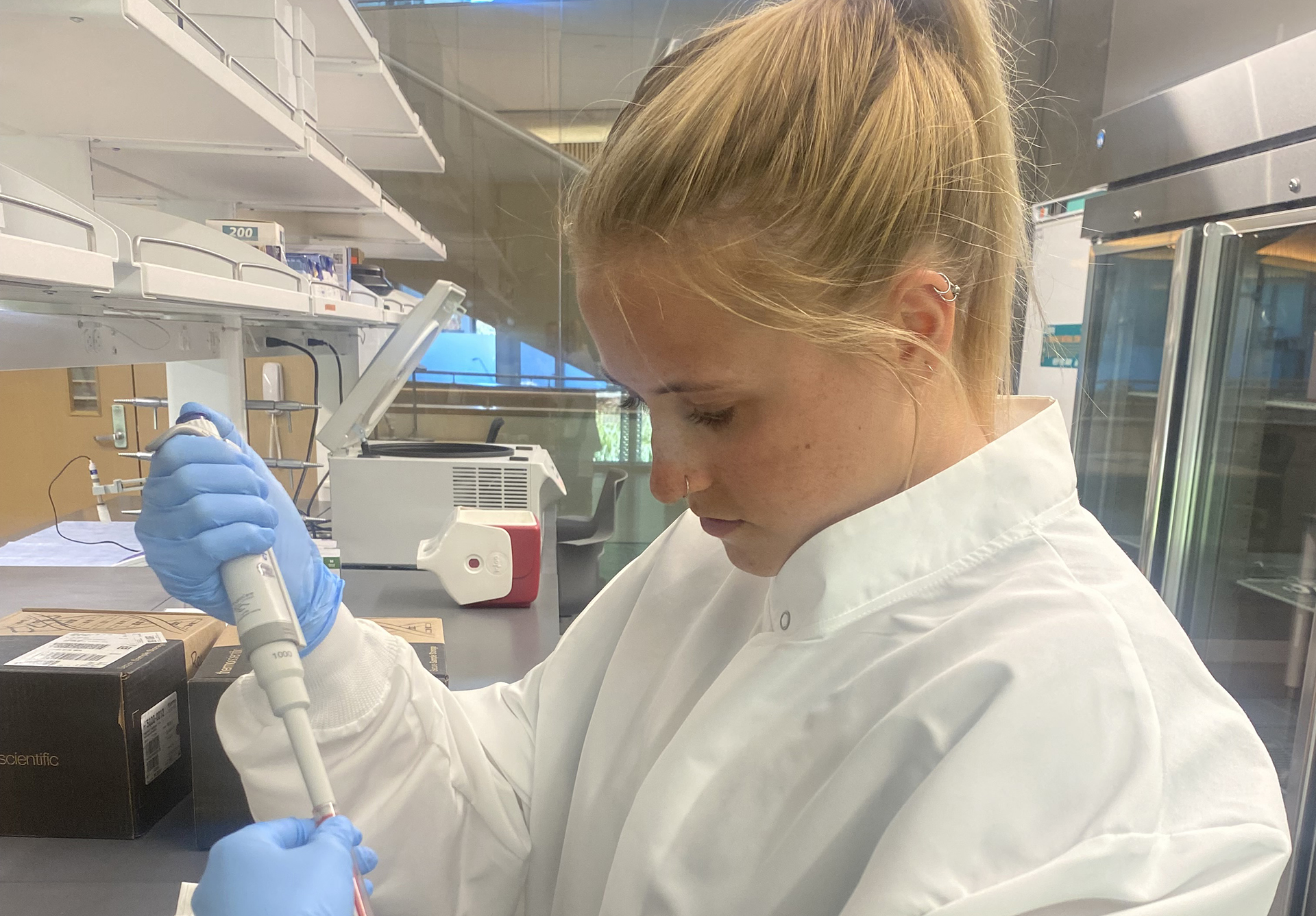Tiny Brains, Big Stakes

Why lron Matters More Than You Think
BY ANNMARIE CORNEJO
Iron deficiency, one of the most common micronutrient deficiencies worldwide, is particularly concerning in infants. The mineral is needed to support growth, brain development and the immune system, among other things. Without enough iron, infants may face long term impacts to both their motor and cognitive development and are at increased risk of mental health challenges, such as anxiety and depression.
A research project headed by Shannon Shoff, assistant professor in the Food Science and Nutrition Department specializing in early-life nutrition, seeks to better understand those effects. “As adults, if we are iron deficient we may get tired or experience brain fog,” Shoff said. “But as soon as we increase our iron supply, in most cases we are fine. In infants, that is not the case. Their brains are developing so rapidly and that development depends on iron. Thus, iron deficiency during infancy can change their cognitive development.”
Nearly one in five infants in the United States may not get enough iron, according to National Institutes of Health. Iron deficient infants are more likely to get sick as our immune systems depend on iron — making them more likely to receive antibiotics. Over the summer Shoff and a team of nine students studied iron deficiency in 34 piglets over a nearly six-week timeline to investigate how antibiotic administration to iron deficient piglets alters their microbiome, metabolism and cognitive development. “Pigs are an incredible translational model for humans as they have a similar physiology,” Shoff said. Additional similarities, such as low iron in both sow and human milk during nursing and the timing of prenatal and postnatal brain development in piglets and babies, also aided in the study, she said.
Shoff and her team are seeking to understand how antibiotics may further exacerbate the negative implications of iron deficiency on gut microbiome, metabolism and cognitive development. “Antibiotics are great and have saved countless lives from otherwise fatal diseases. However, it is important to know what the negative consequences may be so that we can determine how to mitigate them,” she said.
“I have close friends and family who are iron deficient, and it played a large role in their daily lives growing up,” said Claire Hughes, a third-year nutrition major. “I am excited to be part of a project that is dedicated to learning more about the effects of iron deficiency and educating others on why iron is so important for their health and well-being.”
The nutrition students working with Shoff visited the swine unit daily, in partnership with the college’s Animal Science Department, to weigh the piglets, draw weekly blood samples to monitor white blood cells and hemoglobin, and collect fecal samples to study the piglets’ gut microbiome. In the final phase, the team did necropsies to collect tissue samples to further study the impacts to the brain, kidneys, liver and adrenal glands.
Fifth-year nutrition major Krista Robertson plans to pursue a career in pediatric healthcare. “I know how relevant this type of research is in deepening our understanding of certain conditions and learning as much as we can to provide care and highlight prevention,” Robertson said. “I was drawn to this research project because it provided a great opportunity to apply all of the knowledge in regard to nutrition and our body systems that I have studied these past four years in a very hands-on way by physically working with these animals.”
The collected samples will continue to be analyzed in the nutrition lab within Cal Poly’s Boswell Ag Tech Center by Schoff and nutrition graduate students Esperanza Bonilla and Ginger Fitzpatrick. Both Bonilla and Fitzpatrick, who also assisted with the research leading up to the clinical study, are recipients of a California State University Agricultural Research Institute grant from the U.S. Department of Agriculture National Institute of Food and Agriculture NextGen Program Fellowship.
For many of the students, it was their first time working with swine but they eagerly rose to the challenge. “They came together as a team and learned respect for the animals and how to handle them with care,” Shoff said. “I was constantly impressed with their collaboration, problem solving and willingness to support each other throughout the entire project.”
Visit Cultivate Fall 2025 to read more stories.